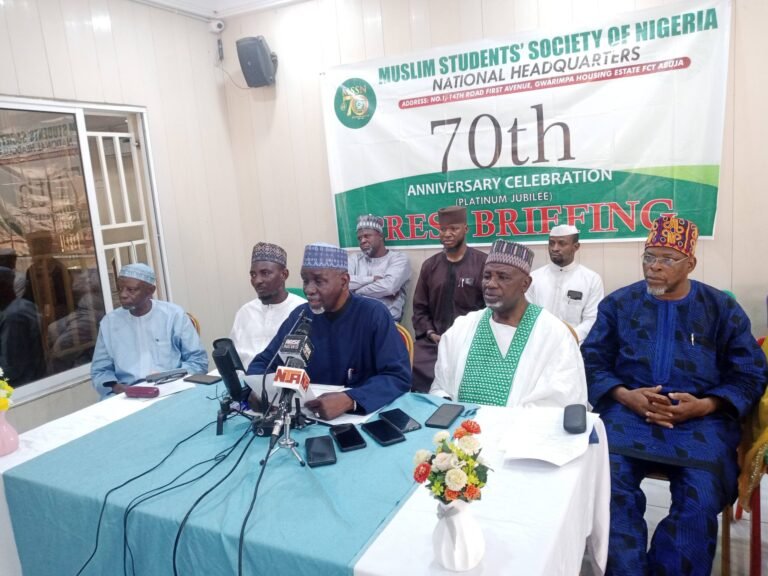The Muslim Students Society of Nigeria (MSSN) has said that it would strive to introduce new programmes and processes that would consolidate the fostering of unity and brotherhood, and also encourage members to participate in politics and governance.
The Chairman of the Organising Committee of MSSN at 70 and the former Governor of Kano state, Mallam Ibrahim Shekarau disclosed this while addressing a press conference on Wednesday in Abuja to highlights programmes lined up to commemorate the 70 years anniversary of the religious group.
He said the new vision of MSSN is to establish an Islamic Ummah governed by the principles and rules of the Shari’ah.
Shekarau noted that part of the aims and objectives of the association is to participate actively in the establishment and promotion of good governance and responsible leadership at various levels of the larger society
The association also aim to lay a sound foundation for financial self-sufficiency that would enable it carry out its programmes and also promote the development of an economically vibrant Ummah that is self-reliant
Beaming a searchlight on the activities of the organisation since its establishment, Shekarau described the first decade of the Society as the ‘decade of crusade.’
He explained that this was a period when Muslim Students were at the crossroads of either to survive as Muslims or submit to Christianity, saying that was what prompted the formation of the MSSN by the founding fathers.
The former Governor noted that the second decade in the history of the Society was a decade of consolidation that brought about remarkable expansion through various initiatives, policies, and programmes, like seminars and conferences.
He said this decade also witnessed the formation of eight Area Units in two regions of the country (The north and South-western region.
Shekarau explained that it was within the second decade that the MSSN introduced the prominent and popular Islamic Vacation Course (IVC).
His words: “The third decade was tagged the Decade of Propagation. During this period the MSSN established 20 Area Units within the then newly created 19 States of the Federation.
“In the same decade, administrative convenience resulted in the formation of A and B Zones with A-Zone comprising all of the Northern States and B-Zone comprising of the Southern States, while central branches were established to cater for the needs of those who have graduated and yet willing to continue identifying with MSSN.
“The fourth decade was the Decade of Reformation, where issues of internal crisis that threatened the coherent existence of the Society were addressed, especially in the B — Zone, while at the A-Zone issues of ideological front on the establishment of Islamic government were faced and resolved. And the increase in the number of State Area Units to 31 came up with the increase in the number of States in the federation.”
Shekarau added that the fifth decade was the decade of rejuvenation, stressing that after numerous internal crisis and challenges, the Society reinvented some of the wills and amended the constitution to address some of the causes of the crises, and engaged in conducting seminars, retreats and publications.
He said the sixth decade was the decade of reintegration and consolidation, adding that the society tried to retrace the path of its founding fathers.
Shekarau noted that this gave rise to a retreat for the National Working Committee (NWC) of the Society to further understand the objectives of the Society.
“The seventh decade, which we are witnessing currently, could best be tagged as the Decade for celebrating past successes and achievements. In it, the MSSN will strive to introduce new programmes and processes that would consolidate the fostering of unity and brotherhood, and that would encourage members to participate in politics and governance,” he added.
The Society also witnessed a lot of consolidation in terms of documentations, erection of physical structures, touring around the Zones, Area Units, Councils and Branches, regularized meetings with the Board of Trustees, bringing brothers and sisters of Secondary schools in the nation together to foster unity and contributions to national development.

